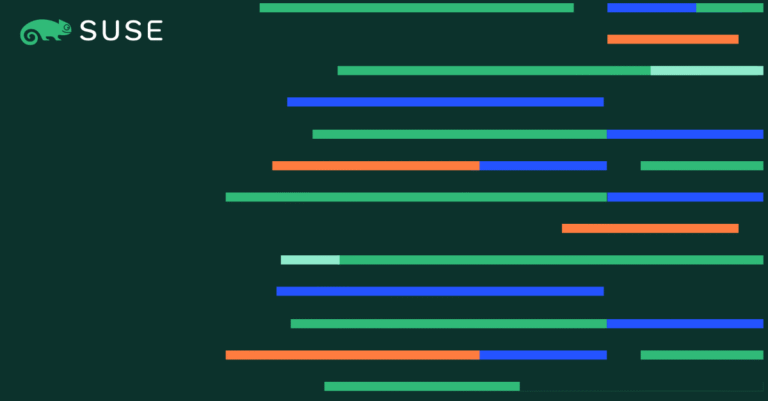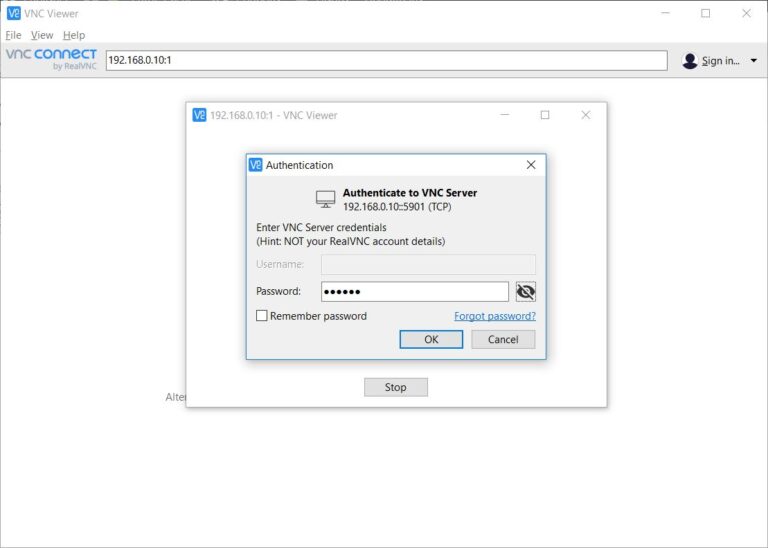Here’s another very interesting review, or shall I say set of reviews from Dr. John van Kampen. John started by reporting his initial experience with Elyssa on his personal blog and then posted an in-depth review one week later. He finally raised a few extra points in an email which he sent to me.
The points risen are interesting and John focuses on the differences between Linux Mint 5 Elyssa and Microsoft Windows XP & Vista from a desktop user point of view.
Link to the initial review: http://my.opera.com/nepmak2000/blog/elyssa-did-it-linux-adventure
Comments on the initial review:
– John said “I looked around a moment to see if very different aspects were available from the Mint version I used until then. No, all appeared familiar.”
–> And yet Elyssa is probably one of the Mint releases which came with the biggest number of changes. Improvements are not always apparent and they can be overlooked. Elyssa does look like Celena, and it does also look like Hardy Heron for people who don’t know the difference. Some users still use rapidshare or synaptic to share files or remove software even though they could do just that from the comfort of their context menu… I’m not saying this is the case here but I’m using John’s statement as an opportunity to stress out the importance of the release notes and of the user guide.
– John said “Incredible compared with a naked Vista installation taking hours and many many more to arrive at the correct drivers for everything, updates for software, installation of non-MS software etc. etc. Such installation truly takes about 1 day! Linux Mint Elyssa, offering little difference from working with Vista, took … less than a quarter of an hour, less than 15 minutes.”
–> Credits go upstream, to the people who made liveCDs possible, to Debian for APT and the huge collection of available packages, to Ubuntu for the Ubiquity installer, to RMS who communicated so passionately and eloquently about free software that we now have open-source alternatives for almost any kind of software nowadays.. to all those who contribute to what Linux is today, a modern operating system. Windows is obsolete in that regard, without almost no 1st party hardware support, no package manager…and with a pace which simply can’t compete, Vista was released more than a year ago, it’s ancient, old and it’s obviously missing all the cool stuff that have been invented since then and most of the cool stuff that’s been put in Linux even since the 90s. The comparison is not even fair 
– John said “The learning curve for people adjusted to Microsoft is virtually zero due to a keen DeskTop concept with several neat refinements!”
–> I hope this was true. Unfortunately, somebody buying his/her first ever computer and willing to read the User Guide will be comfortable using Linux Mint much quicker than somebody used to run Microsoft Windows. There are a lot of differences and Linux isn’t Windows. It’s far easier to explain to someone how to use Gnome or Linux than to explain to a Windows user the difference between Linux and Windows and why most questions/topics which make a lot of sense under Windows aren’t relevant under Linux. The absense of knowledge in a particular field is easier to address than the illusion of it. Learning Windows doesn’t help in learning Linux, it actually makes it harder. The tragedy is that learning Windows is often misinterpreted as learning IT…
Link to the in-depth review: http://my.opera.com/nepmak2000/blog/linux-mint-elyssa-wh
Comments on the in-depth review:
– John said “From October 2007 until end of May I worked with its version “Celena”, that as of now is superseeded by version “Elyssa”.”
–> Celena was Mint 3.1, Elyssa is Mint 5. In between we had a great release called Daryna, codename for Linux Mint 4.0.
– John said “If there exists love at first sight, it really would be for Linux Mint “Elyssa”… Until now I haven’t seen a Linux distribution that was so easily manageable for a Linux-novice like me. In an earlier post I mentioned the time needed to clean install “Elyssa”. And that without hassle or deep thinking what could have been meant with some Linux-jargon one still too often finds on many programmer’s websites. I am not from that clergy, so I want to be addressed with clear information and find simple indications which keys to press if any at all when things get “complicated”. I must admit that the team from Clement Lefebvre, creator of Mint, has done an exceptional job indeed!”
–> This is exactly how I see Linux Mint as a project. There is that part of affection, surprise and proximity that I want to create between the user and the system and which is stressed out by the feminine codenames and more than anything there is that strong desire to make things simple, almost trivial but without taking choice away, not only for novice users, but for experienced ones as well.
– John said “right after you assign your keyboard and select the language for the newly to be installed “Elyssa” distro on your hard drive the installer does some house-keeping and waits without any sign of activity some 30 seconds, as if waiting for inputs about your keyboard… That is not so. The installer is working very hard to find out how your hard drive has been set up and what is available on it that may need to be safeguarded in a next step. Impatience at that moment of “silence” could lead to aborting the installation with the (wrong) idea that the Installer “hangs”. Sitting the wait out (about 30 seconds of zero visible activity) makes all the rest a snap…! The quirk is striking because working with the LiveCD goes very fast and hardly ‘stutters’! Therefor when things halt more than some 5 seconds one gets puzzled, after 10 worried… Why this elaboration on an installer? Because it is the first technical and for many still “complicated” handshake with a new operating system. If things don’t go smooth here, it would perhaps need one more “quirk” to give up on Linux. It has all to do with psychology and perception: the User Interface must ‘convince’, not the user confronted with a one-time technical matter.”
–> I didn’t see this problem and I couldn’t reproduce it but I agree with the analysis. Whatever operation is processed in the background, and no matter how long it takes, the GUI shouldn’t let you think that it’s hanging. A fix is probably needed in the Ubiquity installer to make this operation faster (it’s probably only happening in particular hardware/partitions scenarios) and to make the GUI more responsive in such event. As this is an actively developed upstream component we won’t fix it in Linux Mint. It should be reported as an Ubuntu bug on launchpad.net.
– John said “The innovative modularity of Linux and associated developments, as well as the rich availability of software, made it possible to include an (user-definable) automatic updater in Mint “Elyssa”. The advantage is immediate access to important system improvements when available, security improvements when needed and an automatic growth-path to the future. But also: preventing the novice user to install conflicting software that could downgrade the current Linux version!”
–> That’s exactly what it’s for. However it wasn’t included from upstream, it was developed in-house and it didn’t first come with Elyssa but with the previous version of Linux Mint, Daryna.
– John said “Having installed from my LiveCD a first encounter with this updater surprised me. Some 140 Mb of “improvements” were reportedly availabe for me.”
–> Things go fast and updates reach the repositories very often. By the time a release becomes “stable” and is made available for download it goes through a period called “code-freeze” during which no further changes are made. This ensures a higher quality of testing. Also, after the release day, updates continue to become available.
– John said “Because I wanted to get a quick first impression I selected a security update for a minor glitch. That was recommended (for some ‘early’ downloads like mine). To NOT update fully however, proved to be a stupid miscalculation after a couple of hours, trying to bring my 5.1 stereo equipment to life. A tiny correction in a root-file appeared necessary, yet… Bingo!”
–> There’s a rule of thumb here… 
– John said “With regards to the “old cow” question, the comparison between Microsoft’s XP or Vista and Linux, I hold the opinion that Linux Mint “Elyssa” demonstrates right out of the box its superiority over both Microsoft products.”
–> Linux Mint is a complete desktop environment. The philosophy is completely different between Linux distributions which try to come as fully usable desktops and package almost everything to control software sources and Microsoft Windows which acts as a minimal software layer on top of which 3rd party software is added to provide most of the functionality needed by the user. Both approach have pros and cons. It’s easier to stay up to date with upstream changes with Windows but you basically get no “out of the box” experience and you can’t really trust software sources as there simply are too many of them. Linux gives you a great “out of the box” experience, in most cases you don’t need to add any 3rd party software or drivers and almost everything you install is tested and packaged by the distribution or the one it’s based on (in our case most of the packages come from Debian and are eventually patched by Ubuntu). Windows isn’t an ambitious project and it doesn’t try to provide much functionality, but we need to keep in mind that we’re not solely competing against Windows, we’re competing against a market leader which users are used to add various 3rd party applications, don’t see a problem with that, are not ready to wait for something to be packaged and want to interact with upstream versions directly and not through a centralized software source. Not to mention that most Windows users do not install Windows, it comes pre-installed on the computers they buy. If we were to draw a comparison between Linux Mint and Windows XP for instance, there would be no doubt, Linux Mint would win on almost every single aspect. When we look at a Windows XP system which is fully configured, secured, maintained and on which quality 3rd party software has been installed (legally or not) it’s a different story though.. and this is what we’re competing against. The contest is actually much harder than it appears, we’re not just competing against Windows, we’re competing against Windows, Outlook, MS Office, Photoshop, Quicktime, Civilization IV and all the things people can easily add to their somewhat mediocre yet hugely extensible operating system.
– John said “you could try changing the appearance of your DeskTop from a multitude of available combinations or prefab ready-to-go themes. Your fantasy is the limit.”
–> Choice is the essence of free software.
– John said “Where Vista drudges along trying to copy a file of some 30 Mb, the same takes about 3 seconds with Linux (to stay pessimistic).”
–> I’m not an expert when it comes to performance. I had a bad experience with Vista and an SDHC card which actually made me give up a transfer of less than 50 pictures. I’m not sure whether to give credits to the new virtual Gnome file system here, to ext3 or even to the kernel itself… Linux is definitely more performant than Windows, it’s nothing to do with us though 
– John said “Having worked intensively with new “Elyssa” for a week one really wonders who continues with XP or Vista and why…?!”
–> A vast majority of people never ever heard of Linux Mint and even within the Linux community (which only represents 2% of the desktop market) most people haven’t tried our distribution. “If it ain’t broken don’t fix it”, most people are not looking for an alternative, they use their computer as an appliance and unless they are faced with reasons to change they won’t consider it. First, Windows has advantages over Linux (I truly believe that Linux has become the best desktop on the market, but we still have a lot to learn in some areas, and there are aspects of Linux most Windows users are not ready to give up their OS for). Second, people don’t care too much.. it’s as simple as that.
– John said “The current Linux Mint “Elyssa” desktop is clearly at par with this competitor, if not more advanced and better.”
–> Overall, yes, I would agree. But it’s not necessarily the best alternative for everybody.
– John said “Do you want to live with a great sense of cosmic awareness (here: the freedom and elegance of Linux) or do you rather prefer to believe in supernatural salvation (here: belief in Microsoft)?”
–> I always wondered, in a World where operating systems were to be religions, how people who practice dual-boot would be called 
– John said “While you are a gamer and are better of with XP. I agree for XP, not Vista though. You could also use Linux with Wine and play your game most likely as well.”
–> I would agree for Vista as well. For gaming we’re down to 3rd party game developers/editors and there simply isn’t any comparison between Windows and Linux in that domain. While we can create and develop better alternatives for most software types, games rapidly become obsolete and editors often can’t afford to support multiple platforms. Of course one can buy a Nintendo Wii and use the computer for everything but gaming… or one can have fun with the 60 free games available in the Mint portal ( http://linuxmint.com/software/?sec=category&id=20&release=3 , but the truth is.. if you’re really into gaming, you do need Microsoft Windows.
– John said “The real matter is, that many are afraid to change for the better, because the earlier system was ‘scary’ enough…! Many wouldn’t want more of the same, I learned and are really afraid to change for that reason. “It finally works well and that’s it”, one often hears.”
–> This is spot on, it’s exactly that. Vista is one of the best things that happened to Linux, not because it’s not as good as XP (I actually happen to think that it’s better) but because it’s different and somehow it faced people with the hard reality that soon or later they will have to do what they don’t want to think of: change their OS. A lot of people don’t even know what an OS is and what is the role of Windows among the different functionalities of their system… Another thing is that most Linux users are “happy” with their desktop, while most Windows users are either “content”, “neutral” or even “unhappy” with theirs. The proportion of “happy” users under Windows, of people who run Windows by choice, is much smaller than the same proportion among Linux users. So when people finally decide to make that choice, because they actually have to, they have a look at the alternatives and this is how the release of Vista, the end of life of Windows 98 and all the migrations related to Windows bring more and more people to alternative operating systems. Do you remember how unpopular the new XP look was when it was released? People were still attached to Windows 98 back then and a lot of companies actually kept and still keep Windows 2000… change is the worst problem that Microsoft has to face because they need to adapt to new technologies, they need to improve their OS to compete with Mac, Linux and other potential competitors and at the same time, they need to do all that without making these changes too obvious.. because each time they change something they litterally annoy that huge part of their user base whose main reason to still run Windows is because that’s what they’re used to. With each change and new release, what an OS is, and what other OSes are, becomes more visible to everyday Windows users who happen to run Windows without knowing about it.
– John said “I did test this some weeks ago using the “Celena” version still. I had a female guest to write her emails on my computer pretending to her it was VISTA. She was an excellent target for being accustomed to work with Mozilla Thunderbird on XP. I didn’t show her the 33 seconds of a Linux startup of course, but had her sit behind the keyboard and get going. When she had finished I explained and showed her she had been working on Linux: “You’re kidding!” Now she has ordered her Mint and expects it in a week or so. She isn’t my only example, rest assured. It convinced me however that Linux Mint “Elyssa” is “woman-friendly” as well. Not only male novices like me are quite satisfied with the current human interface, but also the ladies who wouldn’t want to work with “the terminal” and its peculiar commands. You (nearly) don’t need to use it with “Elyssa” and in that respect it certainly has its nose upfront. I am sure that soon a few intriguing UI-quirks will be resolved as well. But they will probably only be found by not-so-new-anymore-novices, perhaps the category of users like me.”
–> Bugs are often found by experienced users but innovative ideas often contributed by novice ones. There’s a lot to learn from people who are faced with a desktop for the very first time because they know what they want to do and they have no knowledge of what makes it hard to implement, which is great for us to know as it highlights constraints that are sometimes here for no valid reasons. It’s called black-box testing and it’s heavily used in the software industry. No one’s better at testing something that somebody who doesn’t have a clue how it works in the inside. There’s no justification or compromise in the user’s mind, if he/she wants to achieve something simple, the system should let him/her do just that.. no matter how it actually does work in the inside.
Comments on the points risen in the email:
– John said “A reasonable severe crash after fiddling a bit too much learned me that on your LiveCD or ISO it would be invaluable to have “Partimage”, which is a terminal thing rather like Envy, but fairly easy to use and with a formidable possibility! I would indeed put this 490 kb programme on your CD for not-so-novice users…!!”
–> I will look into that. Thanks for that.
– John reports a “Strange quirk(s) in the Elyssa Slab Menu. Most intriguing the following when trying to launch Synaptic from it [..]”, he talks about an error message saying “could not grab your mouse” while launching system tools or synaptic from mintMenu.
–> I faced this error message only once.. and it was with the uninstall feature and the C version of mintMenu which never got released… It’s also part of our smoke test to launch every single application in the menus, so I would assume the ISO or the burnt CD is faulty here. I’d be very interested in hearing about people facing that problem… if this does happen in certain cases I’d love to understand what causes it so we can fix that as soon as possible. I need more feedback on this.
– John said “I find the composition of software for Elyssa well-chosen. To consider for your Elyssa website – software are imho (and maybe I overlooked them!):PiTiVi video editor. We should have a thing about like Microsoft’s Video Maker 2. I think PiTiVi is “some” proposition…. Maybe there are better ones? Scribus page layout package of importance. Take a look at this one. Kompozer no comments for obvious reasons…gThumb Image Viewer as a neat quicky to replace … PhotoShop!!!! For quick format changes and quick crops. Perfect indeed! I use it to quickly format my digital pictures for reproduction in “Temperament” (Spain) for which I write.
Miro TV viewer – thought you had that already.”
–> It’s all there already (credits go to Kronophage for adding so much apps to the portal for Elyssa) 
Pitivi: http://www.linuxmint.com/software/?sec=item&id=670&release=3
Scribus: http://www.linuxmint.com/software/?sec=item&id=439&release=3
Kompozer: http://www.linuxmint.com/software/?sec=item&id=643&release=3
gThumb: http://www.linuxmint.com/software/?sec=item&id=631&release=3
Miro: http://www.linuxmint.com/software/?sec=item&id=333&release=3
Conclusion:
I would like to thank John for these posts and especially for this study on how Mint compares to Windows. I’m sure we’ll get a lot of comments on this and it’ll trigger a very interesting discussion. Happy reading everyone and don’t hesitate to comment on this.





